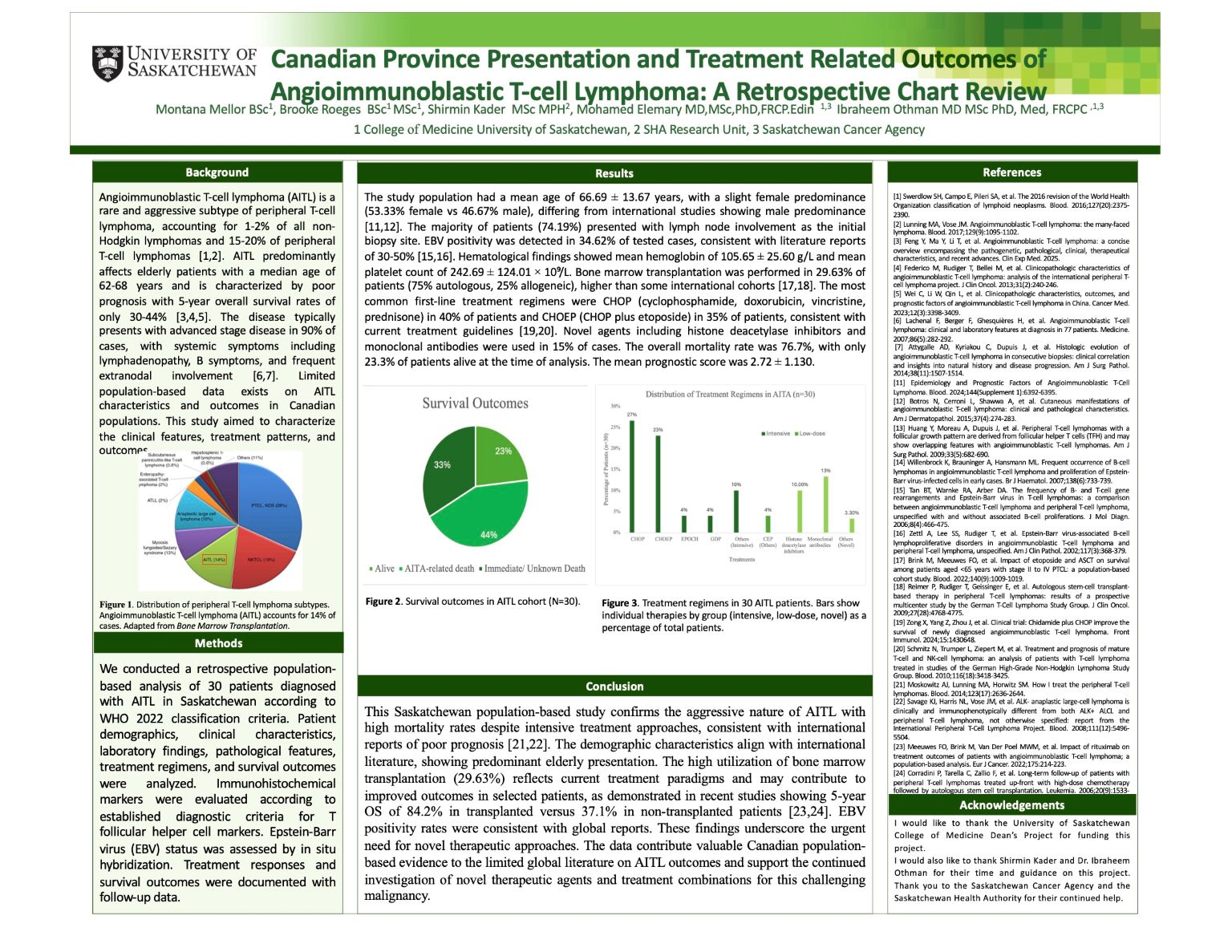
Canadian Province Presentation and Treatment related Outcomes of Angioimmunoblastic T-cell Lymphoma: A Retrospective Chart Review
Montana Mellor
Background: Angioimmunoblastic T-cell lymphoma (AITL) is a rare, aggressive peripheral T-cell lymphoma with poor prognosis and limited Canadian data. This study describes clinical features, treatment, and outcomes of AITL in Saskatchewan.
Methods: We retrospectively analyzed 30 patients diagnosed with AITL per WHO 2022 criteria. Demographics, pathology, laboratory findings, treatments, and survival were collected.
Results: The mean age was 66.7 years, with a slight female predominance (53%). Most patients (74%) presented with lymph node involvement. Immunophenotyping showed CD3 positivity in 84%, CD4 in 63%, and PD-1 in 32%. EBV positivity was 35%, consistent with global data. Bone marrow transplant was performed in 30% of cases, predominantly autologous. First-line regimens included CHOP (40%) and CHOEP (35%). Novel agents were used in 15%. Overall mortality was 76.7%, with only 23.3% alive at analysis.
Conclusions: AITL in Saskatchewan demonstrates similar demographics and poor outcomes as international cohorts. High transplant utilization reflects current treatment paradigms, but survival remains limited, underscoring the urgent need for novel therapies.
